If you're a health professional you should know that you can't implicitly trust medical news outlets. They may be manipulating you!
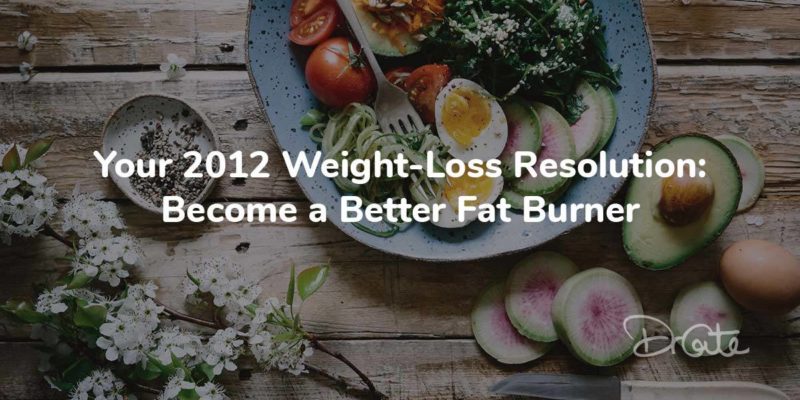
Your 2012 Weight-Loss Resolution: Become a Better Fat Burner
If you are like most Americans, you’ve made plenty of weight-loss resolutions over the years and failed to follow through. It’s probably not that you lack willpower; it’s that you never trained your body to burn fat.
View more presentations from Cate Shanahan.
If you know someone who made a resolution last year to lose weight and now, this year, you can see that they look more fit, then this means you likely have an acquaintance who has become a fat-burning master.
You too can learn to train every cell in your body how to burn stored fat—including omental fat and that cellulite you thought you couldn’t get rid of—for fuel.
When your body burns fat for fuel it is said to be in a “ketogenic state.” That’s the key to healthy, lasting weight loss. Let me tell you how it’s done.
This article is continued below...(scroll down)
Ketogenic versus Carbogenic
A low-carb diet switches on dormant fat-burning enzymes that high-carb diets switch off. That’s why high-carb diets fail in the long term. But even when high-carb diets show some success in the short term, they still promote unhealthy weight loss.
On a high-carb diet, you are burning sugar for energy, not fat. That’s why these diets often involve either calorie restriction, excessive exercise, or both. Do enough of that, and you might experience weight loss. But this begs the questions: Where is this weight coming from? The answer might surprise you: Studies show that people who lose weight following low-fat, high-carb diets are also losing muscle and bone mass, and even vital organs can shrink.
Going Ketogenic
We all know that sugar can provide a quick burst of energy. In fact, if your metabolism is carbogenic, you often need that burst of sugar energy just to get through the day. This isn’t normal. Your body is engineered to run on fat, not sugar, most of the time. We can store roughly 2000 calories in the form of starch. Compare that to the virtually unlimited number of calories in the form of fat. The average 5 foot 5, 120-pound woman with 20% body fat carries about 36,000 calories worth of energy in storage, and bigger people carry much more.
There is a growing number of researchers studying the benefits of ketogenesis, sometimes called nutritional ketosis (not to be confused with diabetic ketoacidosis, which can be dangerous). They’ve discovered that ketosis can boost athletic performance, reduce epileptics’ seizures, and prevent cancer (learn more from the Nutrition and Metabolism Society, see link on right sidebar).
Why You Aren’t Ketogenic Right Now
Your cells would rather burn fat, but they can be trained to depend on sugar. If you’ve been eating a low-fat, high-carb diet for years, by now you have down-regulated your fat-burning enzymes for so long, they may have completely shut down. Your cells may now be so dependent on sugar they will make your body produce it any which way it can.
If so required, your cells can convert protein into sugar. Can they also convert fat into sugar? Unfortunately, no. For this reason, sugar-hungry cells go on the hunt in muscle and bone, not your extra fat. I’ve had patients hunched over from premature osteoporotic fractures after following a high-carb (and low-protein) diet for several years.
Perhaps we should be thankful that cells aren’t that proficient in turning these good tissues into sugar. That’s why sugar burners can’t rely on these tissues to sustain them between meals.
Your Ketogenic Year Starts Today
I could go on about how high-carb diets do all kinds of other terrible things to your metabolism, like coating cell membranes, stiffening joints, and blocking hormonal signals. But I don’t want you to have to wait another minute (besides, I discuss all that in my books). Right now, I just want to it as easy as possible for you to come on over and join the ketogenic tribe.
Here are five simple things you can do starting now to make sure your resolution sticks.
Jumpstart your fat-burning enzymes for the day with a balanced breakfast.
In general, I recommend starting your day with a meal that provides roughly equal parts protein and fat, and no more than about 10gm of carb, and I would stick to real food, not powdered supplements. For example, I drink a cup of raw, whole milk with about two ounces of fresh cream in my coffee, and twice a week or so that lasts me all the way to dinner. See recipes tab/breakfast for more ideas.
Keep daily carb totals under 100 gm, and between 30 and 70 gm for faster results.
Because of sugar’s toxic effects on your body, when you eat anything with enough carb to cause a blood sugar bump, the sugar triggers a phalanx of hormones designed to turn off your fat-burning enzymes and turn on sugar-burning and fat-making enzymes. Depending on your activity level and other hormonal factors, the per-meal maximum varies between 10-30 grams, and above that, your fat-burning enzymes may be switched off all day.
Eat more fat.
If you’ve been drinking skim milk, eating low-fat cheeses and fake-butter spreads, avoiding egg-yolks, and trimming the fat from your cuts of meat, you’ve deprived your body of nutrients your need for tissue regeneration and optimal health.
All animal fat from pastured animals is chock-full of nutrients including phospholipids, choline, and biotin, all of which have been used as weight-loss supplements. Dairy from pastured cows contains Conjugated Linoleic acid, another fatty acid that is sold for both weight loss and cancer prevention. All such fats are generally not used for fuel but rather for constructing cell membranes, especially in your skin and nervous system. So as you put that pastured butter in the pan before frying up a couple of free-range eggs, don’t think of what you’re doing as burdening your body with calories you’ll be carrying around or fuel you’ll need to burn. Instead, realize you are about to enjoy a meal that your DNA will use to create a stronger, healthier, thinner you.
Another reason you need fat is that your digestive system is incapable of absorbing fat-soluble antioxidants and vitamins A, D, E, and K without fat to facilitate the process. This means if you’ve been eating low-fat dressings on low-fat salads for lunch, most of the vitamins in those veggies have been passing right through you.
Get plenty of protein.
Now that you’re not tied to low-fat versions of protein-rich foods, you can go ahead and enjoy truly nourishing, protein-rich foods like eggs, cheese, hamburger, and shellfish. Gauge the amount of protein you need in this protein matrix, below.
Stop snacking. Seriously.
If you want to lose weight, there is no such thing as a healthy snack. Why? Because snacking provides you with sugar and/or protein to burn for fuel, the body never had to dip into its fat reserves to keep you going. A few other reasons to quit snacking:
Isn’t it hard enough to plan 3 healthy meals a day? Do you really want to plan for a healthy snack on top of all that? After all, when you’re really in a rush, foods that might seem like a snack could serve as a meal, and seem more like a real, planned-out meal if you don’t ever snack. For instance, sometimes I just have a couple of handfuls of nuts and a slice of cheese, or a small pile of sauerkraut. For me, that’s a light lunch.
If you avoid snacks then by the time you finally get to eat you are more likely to actually be hungry. The hungrier you are, the better food tastes. Enjoying the taste of REAL food (carb-y and sweet foods don’t count as real food for reasons described elsewhere) is key to health and lasting weight loss success.
Your GI tract needs to rest. If you are eating every three to four hours, your intestinal system is always working and it’s just not designed for that. For one thing, when you eat, your GI tract is forced to draw several liters of fluid from your bloodstream, and interstitial tissues. This drops your blood pressure and can also make you feel tired, cold, or both. If you snack and then have to be up and rushing around, your body now has to route blood to your legs that your GI tract could really use. This is a setup for all sorts of digestive misfortune from GERD to irritable bowel and inflammatory conditions.
For best results, find an ally.
If you’ve been programmed by the government, high-school health class, and college nutrition courses to fear fat and find the opposite information presented here confusing, join the club.
We all heard low fat is healthy growing up and only the wisest among us could consciously reject it. I was programmed too, and spend many years in Hawaii trying to sort through conflicting technical science before I could, with confidence, give my patients this kind of new advice. The real boost to my confidence only came when I joined the Nutrition and Metabolism Society and met other like-minded health professionals all using a ketogenic diet to produce similar amazing results. My point is, I know how hard it is to go against the mainstream idea on your own. So to that end, I encourage you to find an ally, ideally in your family or among friends, but if not, there are tons of online meeting places to help you.
One of my favorite resources is plain-talking, down-to-earth exercise-kinesiologist, and weight-loss expert Sean Croxton. His Undergroundwellness website and podcasts will introduce you to lots of people who are using low-carb, high fat, high protein diets to help their patients see amazing health transformations, and his book is a fun read and offers lots of delicious recipes with links to detailed video instructions.
A few more great support-education sites:
- http://Paleohacks.com/
- http://jackkruse.com/
- http://livinlavidalowcarb.com/blog/
- http://RobbWolf.com/
and for delicious recipes:
So if you’ve resolved to lose weight in the past and failed, 2012 is a fresh year. If you get serious about traditional food and healthy sources, 2012 could be the best year of your life.
If you have questions like What kinds of fats are good? or What kind of meat should I eat? I have answered most such questions elsewhere, and encourage further reading around the website.
If you would like to read one of my books and are not sure which one to read first, here’s what I usually advise. For those who have not read many nutrition books and don’t really enjoy knowing the full story but just want to cut to the instructions, I recommend you read Food Rules. For those of you who have a good background in nutrition or love science, I recommend Deep Nutrition first. Of course, many people end up reading both because the information in each is meant to complement, not replace, the other.
RELATED POSTS:
Please note: Please do not share personal medical information in a comment on our posts. It will be deleted due to HIPAA regulations.
This Post Has 53 Comments
Comments are closed.
Note: Please do not share personal information with a medical question in our comment section. Comments containing this content will be deleted due to HIPAA regulations.



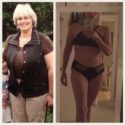



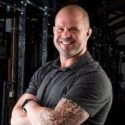








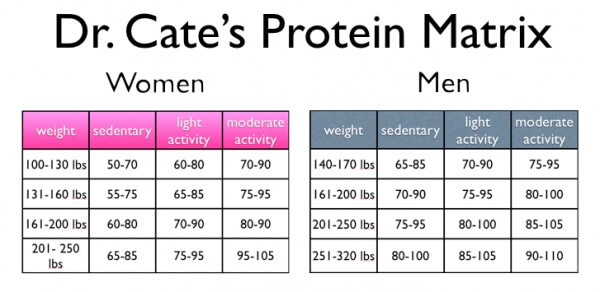
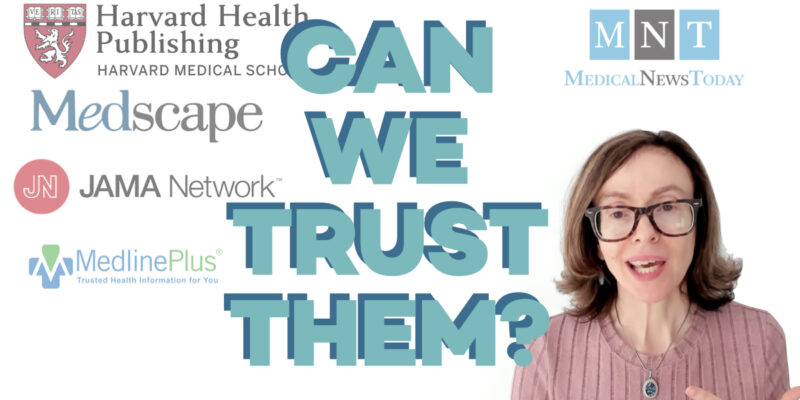
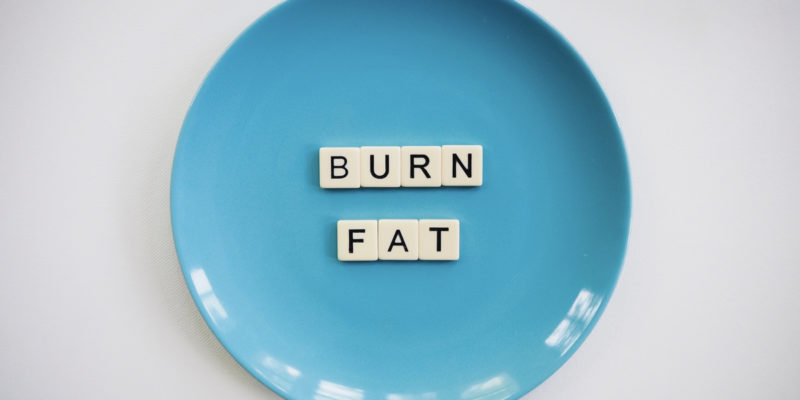
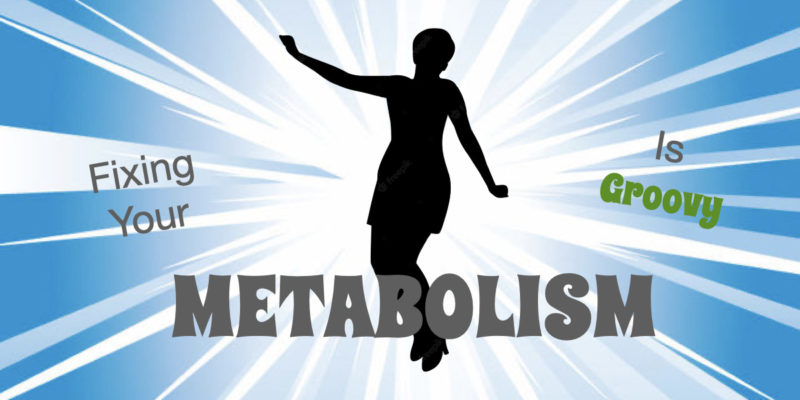
Dear Dr. Cate,
After much research (your book Deep Nutrition, etc.) and gut instinct (digestive problems), I have decided to lower my carb intake. I have been eating lots of bone stock, ghee and other traditional fats, animal protein, and fresh and fermented vegetables and avoiding certain things as you have suggested. I am down to about 50 g/d (down from about 90-100 g/d) and I feel weak and dizzy throughout the day. I saw your post regarding the amount of daily protein intake a person should have and I am wondering how much fat I should be eating daily.
With gratitude,
Mia
When you cut carbs, you often reduce your salt. Consider adding more salt, and if that does not help consider getting professional input by checking out the list of low carb doctors at Jimmy Moore’s website livinlavidalowcarb.com
My wife and I have watched “Fat, Sick & Nearly Dead” and “Forks Over Knives”. These movies promote juicing fruits and vegetables. We’re juicing and also eating some regular meals, but in less quantity. There has been some noticeable improvement. A few pounds lost, less joint pains. We’re in our 60s. But when I enter what I eat in myfitnesspal.com my sugar consumption is high, even though we do 20% fruit to 80% vegetable in our juices, and the foods we eat are not so carb-y. We like the juicing. Here are some questions:
1. Does vegan eating fit well with the TRIM program?
2. What about arachidonic acid in egg yolks?
Thanks,
As for the no snacking, what about snacking on a hard-boiled egg, cheese or nuts? I am thin, (5’3″, 103 lbs), work-out 5-6x a week but am trying to gain some muscle weight. Also, in Food Rules, you advise against protein shakes and recommend yogurt smoothies. Is there a certain yogurt blend I can make and consume after a work-out that you can recommend for me…or another ideal protein source? I have changed a lot of my dietary ways after reading your books and like what I am reading..
That makes perfect sense about cooking methods, though I think the acid/alkaline theory proponents think of the ash in terms of what gets produced in the body when the foods are burned/metabolized. Seems to me the fact that various pre-industrial peoples consumed almost entirely “anabolic” diets and had vibrant health speaks to your comment about the body’s ability to maintain proper pH on traditional foods.
Dear Dr. Cate,
Have you written about the popular topic in holistic nutrition circles regarding the acid/alkaline balance and the notion that most people need to consume more alkalinizing/catabolic foods and less acid-forming, anabolic ones?
As is so often the case with nutritional topics, the more I read, the more contradictory information I come across.
I would appreciate your thoughts. Or feel free to point me to your previous writings on this. Many thanks.
The acid/alkaline balance theory originated in a time before physiologists had a solid understanding of renal function and this theory appears incompatible with our current understanding of human physiology.
In my view the main reason there is so much contradictory information in the nutrition world stems from the fact that much of modern medical thought has been tainted by the cholesterol theory of heart disease, which many of us now know is not supported by science. However, most of the other information in medicine is sound. Still, alternative viewpoints to almost every accepted piece of data persist thanks to the lost credibility arising from the misstep of the cholesterol theory.
Thanks for your helpful reply. That’s very interesting, and not surprising. I’ve seen claims that too much acid “ash” in the body as a result of consuming too many anabolic (animal) foods can lead to imbalance and disease. The suggestion is to help the body maintain a slightly alkaline pH by eating more vegetables for their alkalinizing minerals and fiber. Could you elaborate at all on your response or point me to any articles or books on this from trusted sources?
Your body maintains it’s pH with a traditional diet and while I don’t directly address this acid alkaline theory in Deep Nutrition, in the chapter where I describe cooking meats according to traditional principles I explain the pitfalls of overcooking meat that avoid this issue with “ash”
[…] calories as fat. One of Dr Cate's recommendations for fat-loss: simply "Eat more fat": Your 2012 Weight-Loss Resolution: Become a Better Fat Burner | drcate.com So slightly less carbohydrate than 30% may be better, particularly while you're trying to lose […]
Hi Dr. Cate,
I read your book and I only wish there was a French translation of it to pass the info to my family/friends here in Quebec who don’t read English.
My questions is regarding calories, I know I shouldn’t be counting, but I want to lose 15 lbs (currently 127 lbs, 5’4″, 30 yrs old). If I’m correct, by eating 30-50g of carbs, 70g of protein, no grains/fruts, and what I believe is a good quantity of fat (about 4 tablespoon), this only comes to about 1200-1400 calories. Is this enough?
Hmm. That is not really enough to get you all the nutrients you need.
Thank you for your answer! I’ve been forever yo-yo dieting and I don’t know what my “feeling of fullness” is. Although I have been trying to eat low carb for the past mths, I can easily eat half of a bottle of coconut oil by the spoon… I feel that I need some structure for now to help me with ending this yo-yo dieting. Would around 150g of fat per day be reasonable? (I also eat bone broth, fermented veggies, grass-fed meat, but no raw milk as not available). Thanks again!
Varying between 100-150gm would be a good range. You don’t need or want to do the same thing every day!
Hi Dr. Cate,
I’m thinking about writing a book on losing the baby weight, following a low-carb lifestyle. I know you’re super busy, but was hoping once i make a big enough dent in the book, if you’d take a look at it and tell me what you think and also, i’d be thrilled if you could write an opening chapter. It will most likely just be an e-book, but hey, i have high hopes that maybe it’ll make its way into mainstream. I am not a doctor, so i would love it if you could write something about the safety of doing low carb (not extremely low) while also breastfeeding. Thanks in advance for your time, and thanks again for your wonderful books and blog that inspire me to say no to sugar and bad oils!
BEst,
Tina
I have been following your TRIM diet for approximately 1 week now. Though I’ve lost 7 pounds, I don’t register increase ketones on urinalysis. Should I be registering, when should I start or should I be concerned about that?
The ketone strips you are using are probably for diabetics, and so you are testing for diabetic ketoacidosis (DKA). DKA involves much higher levels of ketoacidosis than nutritional ketosis (NK). Those test strips may barely register NK, or they may not. So no you don’t need to be worried! Your weight loss is powerful evidence, and if you were measuring waist and neck and other numbers to calculate your fat composition, that would be going down perhaps even faster than your weigh.
Dear Dr. Cate,
I really need your help. I am about 80 pounds, 4’9, 41 years old and moderately active. I’ve been eating low carb/high protein foods for a couple of years to relieve severe stomach bloating and stomach pain (not to lose weight). However, now I am urinating excessively and am pretty sure I’m consuming too much protein. I feel like I fixed one problem and created another. What is your opinion about eating more carbs if they are prepared in the traditional manner (soaked, sprouted and/or fermented) and from a wholesome source?
Michele
Sprouting and fermenting reduce your ‘carb footprint” by 10-20% for sprouting, and potentially much more for fermenting. This is one reason I support the practices.
I often find people are doing too much protein and not enough fat. And the more meat you eat, the more you need bone broth and lots of water.
[…] Become a Better Fat Burner […]
Laureen
You might be interested to know that Dr Richard K Bernstein, who is in his 80s and has lived with T1DM for most of his life, is on a low carb diet. He’s written several books and runs a blog and has answered your question in detail.
Hi Dr. Cate,
Can you do a post on low-carb diets and hypo-glycemia and T1 Diabetes? Is that an issue when omitting snacking in between meals for people with low blood sugar? Since proteins and fats are slower burning fuel and we don’t get the high followed by the dip, is it that less “fuel” is required and blood sugar stays more stable? I definitely eat less and have pretty much eliminated snacking since eating higher protein/fat. Just trying to make sure I have my head wrapped around this stuff. I have a workshop on diet tomorrow and know I’ll be asked!
Thanks!
Hi Nivi
the state of metabolic ketosis is indeed a healthy state, and there is no reason this would apply only to some individuals and others. As far as the bad breath I have not noticed it in any of my patients in ketosis and imagine it depends on your oral hygiene.
As a dental hygienist I do remember learning about the smell of breath in ketosis – although I believe it was more related to diabetic ketosis. Which as Dr. Cate has said is different. Possibly these people have a hormone inbalance or are in diabetic ketoacidosis?
Dr. Cate, I really enjoyed reading “Deep Nutrition” and am trying to implement your advice. In general, I’ve been trying to eat according to the primal diet. I’m not certain this is the best diet for me, as a few naturopaths and kinesiologists concurred that my liver is having a tough time detoxifying (symptoms include pretty severe eczema and difficulty with processing foods with a high glycemic index). I just wanted to find out if you believe that ketogenic diet is the way to go for everyone. On a side note, I’ve heard that people who adhere to this kind of diet for long periods of time end up having bad breath?! Please explain your thoughts. Thank you so much!
Mark
All seeds are loaded with fiber, about 10-12% by weight so that 100 gm (3 oz) of whole wheat flour has about 12 gm fiber, 100 gm sunflower seeds or almonds also have about 12 gm fiber. And veggies have fiber too.
Additionally, how can one get 25 grams of fiber on a diet consisting of 50-100 grams of carbs?
Alex
I agree with her first assertion. But saturated fat does not block sugar burn, while sugar does block fat burn.
Schwarzbein says that if your metabolism is badly damaged you will gain weight before you lose weight, that it’s necessary to first build achieve hormonal balance. She also suggests avoiding saturated fats until your metabolism has healed, “if you have a badly damaged metabolism and cannot burn saturated fat for energy…they can keep blood sugar levels higher.”
I was wondering what your thoughts are on this?
Thanks so much!
As long as his diet is otherwise balanced (ie he’s not eating so much broth that there’s little room for other necessary foods) can’t see why it would be bad for him! At some point he may get tired of it and that’ll probably be a sign he’s caught up in whatever needs he had and it’s fine to take a break and return later to 1-3 servings a week. If not, that’s fine too. Broth is good food!
I am so sorry to have bothered you with my question. …[removed by request]
But, my husband is still suggesting that broth every day with breakfast is not good for the boy. What do you think?
Mark
I will be including a section in my upcoming book on this, thanks for your suggestion!
Dr. Cate,
Welcome to Northern California. I was sold on high carb, low fat, moderate protien years ago and have yoyo’d ever since even though I am a regular workout regularly.
I started a Paleo regiment three weeks ago. In my readings the last few days I have learned that the removal of my gallblatter ten years ago has lessened by ability to metabilize fats. Can you discuss this and let me know what I can do to stay on this program and have it work. Thanks, Mark
Dr Cate, your work is inspiring. True science once was based upon the same open curiosity and intellectual honesty that you bring to the issues you study. Yea, once. I laughed, but completely agree with you, when you said words to the effect that with enough research funding you could move mountains. Yes, you could.
Of course, I am coming to you with a question. Sorry, I have no one else to ask. I think my husband, a wonderful physician who is 12 years post cardiac bypass, doesn’t look too kindly upon my following your precepts. But I am losing my long held fat stores and, what’s more, I am feeling so well, in a hard to explain way.
The problem is this: my 17 year old son got motivated to change his diet and is reaping the good things of low carb/ moderate protein / high fat. He has moved away from processed foods, processed salad dressings and thus lowered his seed oil consumption. His body is changing for the better and he reports his gut feels great.
He has been having a hot cup of broth for breakfast every morning. When I make the broth I use a mixture of some grass fed beef knuckle bones and some supermarket pieces of long bones (these may have impurities, perhaps).
My question is is there a possibility that too much bone broth – every day, for example – can be bad for you? Thin or compromise the blood?
Thank you so much.
Yarei
I do not think needs change. In fact, since gestational diabetes is so common one might even think that your carbohydrate needs are reduced. HCG, the hormone of pregnancy, helps to promote fat burning. That’s why some people inject it as a weight-loss medication.
Dr. Cate,
Thanks for your response earlier on. Would you recommend no more than 100 grams of carbs per day, even if you are pregnant or would your needs change? Thanks in advance for your time.
Jean
Sometimes micronutrient/mineral deficiencies are the issue. Sometimes it’s endocrine system problems, or sleep problems. It could also be if you’ve been heavy for a long time there’s enzymes that need to be made from scratch and waking up the dormant genes can take some doing and time. It’s probably worth consulting a low-carb/paleo doc in your area. http://lowcarbdoctors.blogspot.com/ or http://paleophysiciansnetwork.com/doctors
Dr. Cate,
I read DN and found it to be a fascinating read. It gave me so much hope that I can turn around my health problems and not feel like I’m being punished by genetics!
I have been eating a low carb diet (I am actually on the GAPS diet) with less than 30 gm carbs per day. I primarily eat protein and fats – good quality, pastured, grassfed stuff. The problem is I am actually gaining weight after initially losing. I find that if I increase carbs above 30 gm I practically instantly gain.
I am very limited in my diet by food intolerances, so I really only eat meats, fats, and a few veggies. No fruits, nuts, starches, etc. Any suggestions or thoughts on what may be going on? Thanks so much!
Caryn
See my post about inflammation causing celiac disease here:https://drcate.com/what-is-celiac-disease-a-recipe-for-recovery-beyond-gluten-free/ . The same general principles apply to Crohns. You would need to work closely with a physician or practitioner who can monitor your health conditions. Paleophysicians network http://paleophysiciansnetwork.com/ and low carb doctors http://lowcarbdoctors.blogspot.com/ can help.
Hello there, I have epilepsy and also crohns disease. I just stopped taking prednisone about five months ago. I was very ill and gained about 50lbs that I now want to take off. What is you advice for someone with Crohns related food sensitivities?
Thanks.
Thank you so much for your response. I think it speaks volumes about your character that you respond to individuals. Black pudding is a blood sausage and white pudding is a sausage made with suet, oats, and liver. These are typically sliced and fried and are part of what is known as a traditional Irish breakfast–eggs, Irish sausages, rashers (kind of like Canadian bacon), white pudding, black pudding, and grilled tomatoes. When I first moved to Ireland I thought it was a heart attack just waiting to happen, but now I can enjoy these foods more often thanks to your wonderful books (now it’s just a matter of buying the meat from the right source). In fact, Food Rules just arrived today and I am already nearly done. I love how you have organized it and made it so simple to read and follow (this also makes it easier to share with friends). Again, thank you.
Melissa
Yes if you go from eating lots of carb and little of much else to more than very little carb, lots of protein, and little fat, you may never trigger the fat-burning switch. Starting the day with good fats, and some protein and less than 12 gm carb should help. Ketone test sticks for diabetics are for measuring keto-acidocis not quite as sensitive as they need to be to detect nutritional ketosis reliably. there are supposed to be new nutritional ketosis tests coming out soon, however.
Crystal
When it comes to weight loss, strict carb accounting is valuable. I advise keeping total carbs between 30 and 70 gm. So regarding those oats, their carb content still counts, though I’m sure they’re better for you than ordinary oats!
I’m not sure what black and white pudding is. Black pudding is made with blood, and would have similar benefits to liver, if you would like to try that one. Egg including fish eggs also ‘count’ as organ meats. Meat on the bone provides wonderful, but not substitutable, nutrients. Cider before meals can aid people with digestive problems. If you don’t have notable problems, you don’t need the aid.
I’m really glad you posted this. Lately I had been wondering if I was eating too many carbs and protein for weight loss. I discovered Deep Nutrition last spring and also picked up Food Rules and want to thank you for these wonderful books, they have really pointed me in the right direction. I had been a repeat low-cal/low-fat dieter for the past 10 years and feel as though it has really done some harm. Since reading your books I have become involved with CSA programs from local organic farms in my area and also have a raw milk share from a local dairy with grass-fed cows (not to mention their grass-fed beef). I need to lose about 70 lbs and had some success initially with weight loss but about after the first month it seemed that I was not losing any more weight. The fall CSA share brought more carby vegetables such as potatoes, yams and squash and combined with drinking the raw milk I was concerned about the carb count, but felt I was still hovering in the 50-100 grams of carbs a day range.
I may have been eating too much protein as well, after seeing your chart. I noticed you said your cells can convert protein to sugar. If your cells are primarily dependant on burning sugar and have down regulated the fat burning enzymes, and then you switch to a diet that is low carb but higher in protein, would the cells start converting this protein to sugar rather than turning on fat burning enzymes? I worry that I am the typical person you describe above whose fat-burning enzymes have totally shut down. Is it scientifically feasible for your body to just convert dietary protein to sugar, further perpetuating the sugar burning cycle? Would the ketone sticks that test ketones in the urine be an accurate way to tell if you are burning fat, or would this method of testing be complicated by eating a high amount of fat in your diet? I am looking forward to your next book and thanks again!
Dr. Cate
I have been reading your book Deep Nutrition and have found it very insightful. I’ve been slowly changing my habbits and I’m starting to notice wonderful effects (mainly with my digestion system). I find that when I have a nice breakfast of like eggs, white and black pudding (I live in Ireland), or an amazing omlette made with mushrooms, onions, garlic, tomato, organic full-fat smoked cheddar, and of course Irish butter (the most amazing butter ever) that I don’t even need lunch and if I have one it’s very light (and I’ve been hypoglycemic for years!). I also switched our milk to organic whole milk from grass fed Irish cows and my kids now beg me for milk (and they don’t even want chocolate in it any more). I haven’t lost much weight yet (but this may be attributed to 2 weaknesses of mine . . . chocolate and potatoes (not together of course). However, I am loving being able to cook more of a French style and not feeling guilty about it (I just love to cook in butter with fresh garlic). I’ve also ordered your book Food Rules and am very excited for it to arrive. Since adding more proteins and fats I feel more energetic and have less abdominal stress (and that issue seemed to be resolved quite quickly). I have two quick questions about something you say in your book: firstly, you talked a bit about Scotish oats from nutrient rich soil. I do love organic Irish oats also from nutrient rich soil and I was wondering if by enjoying them in the same matter you discussed (letting them ferment over night) will set me way back on the weightloss track since they are still a carb. You also discuss the eating of offal a lot in your book, and I have to be honest . . . I have tried and tried and I just really hate liver, kidneys, and heart (all of which I have recently tried). I do like black and white pudding though. Is it at all possible to still get the nutrients I need from meat on the bone? I know that offal was one of the four pillars and this has really concerned me. Lastly (somewhat off topic) is there any truth to incorporating organic, unpasturized, unfiltered, undiluted apple cider vinegar to your daily diet in regards to health improvement and weightloss? Thank you for your time (especially the time spent on writing your wonderful book).
Tina
My educated guess on carb supplementation during breastfeeding follows: Human milk contains about 7% carb, or 7 gm per 100 ml (3 oz). So for every three ounces of milk you produce, you get about 7 gm carbs to eat ‘free’! Whether you have to supplement or not is unknown, but I’d say go ahead and try it and eat otherwise well and see if your weight is doing what you want.
Sue
To answer your question: It is my understanding that the digestive system requires several liters of fluid to digest a meal. While our bloodstream carries (on average) about 5 L, the bloodstream is not the only source of fluid in our bodies, as much can be drawn from interstitial spaces and even intracellularly. Furthermore, the fluid shifted from the blood and interstitial space is not lost from your body like she suggests because the vast majority will get reabsorbed.
I am dissappointed that the woman running the website does not appear to engage in reasoned discussion.
Hi Dr. Cate,
I’m wondering how many carbs do you think I should have to still lose weight while nursing my 7 week old? I’m dying to lose the baby weight but I don’t want to risk messing up my milk supply. Also, I love sugar in my coffee and find I snack more as I am nursing. Do you recommend going cold turkey on eliminating these devils?
Thanks!
Tina
“Your GI tract needs to rest. If you are eating every three to four hours, your intestinal system is always working and it’s just not designed for that. For one thing, when you eat, your GI tract is forced to draw fluid from your bloodstream, and can take several liters out of your circulation. ”
The post was just discussing the accuracy of the above statement that SEVERAL LITRES of fluid is drawn from your bloodstream out of your circulation.
Hi Sue
I checked out her site and found that she says I am telling people “…snacking will kill you.” I don’t think anyone in their right mind would come away with that from reading this post. It’s nice to have people checking the accuracy of my statements, which, by the way, I stand by, but this kind of hyperbole is not elevating the conversation.
I need to resist being drawn into off-the-topic arguments. The issue here is fat-burning and the only reason for bringing up the fluid shifts is to explain why eating while being physically active can stress the digestive process and the rest of your body. It’s why your mother told you “sit down and eat” not “run around and eat” mmmmmkay?
Do you have references what you are claiming re the GI tract during snacking?
Your post is being discussed here:
http://carbsanity.blogspot.com/2012/01/physician-phollies-i-dr-cate-shanahan.html
Snacking may lead to over-eating but not by all.
Yarei
Glad to hear you’re feeling better and enjoying a new diet. Once you start eating better, the weight loss will be inevitable, but it’s hard to predict without knowing tons more details when. The fact that you are losing speaks volumes, and don’t forget about inches (many people losing abdominal fat don’t lose weight very fast, but lose inches pretty reliably. While some say that rapid wieght loss is key because you may lose motivation, I just can’t get on board with that. My POV is take your time. For long term success, I’d much rather you focus on enjoying what you are doing that pick a number for weight loss.
As far as allergies, if you got the diagnosis based on a blood test and not on a meticulous symptom review, any good allergy specialist will tell you that the results are meaningless. And if it was on a symptoms review, then you can change the species and may find you don’t have a reaction. (Cow to goat, chicken to duck).
Hope that helps!
Dr. Cate!
Thanks for posting this. After years of hearing of a low carb/high fat diet, I read your book and have given it an honest shot. Amazingly- I feel better than ever and overall my health has taken a turn upwards.
Couple quick questions for you. I have a autoimmune thyroid disease (hashimotos) and bc of this.. or perhaps bc of past diets, have also found to be allergic to dairy and eggs among a few other things. This really frustrates me as I know good dairy and eggs are key in successful diet. Any recommendations regarding allergies?
Also, what is a healthy pace of weight loss? I have been eating this way for about 2 months and have lost about 3 pounds a month on average. To be honest, I haven’t tried that hard. I have just cut out most carbs (keeping mostly fruit) and exercised like I always have. Is this a good pace or too slow or what are your thoughts?
Thanks so much!